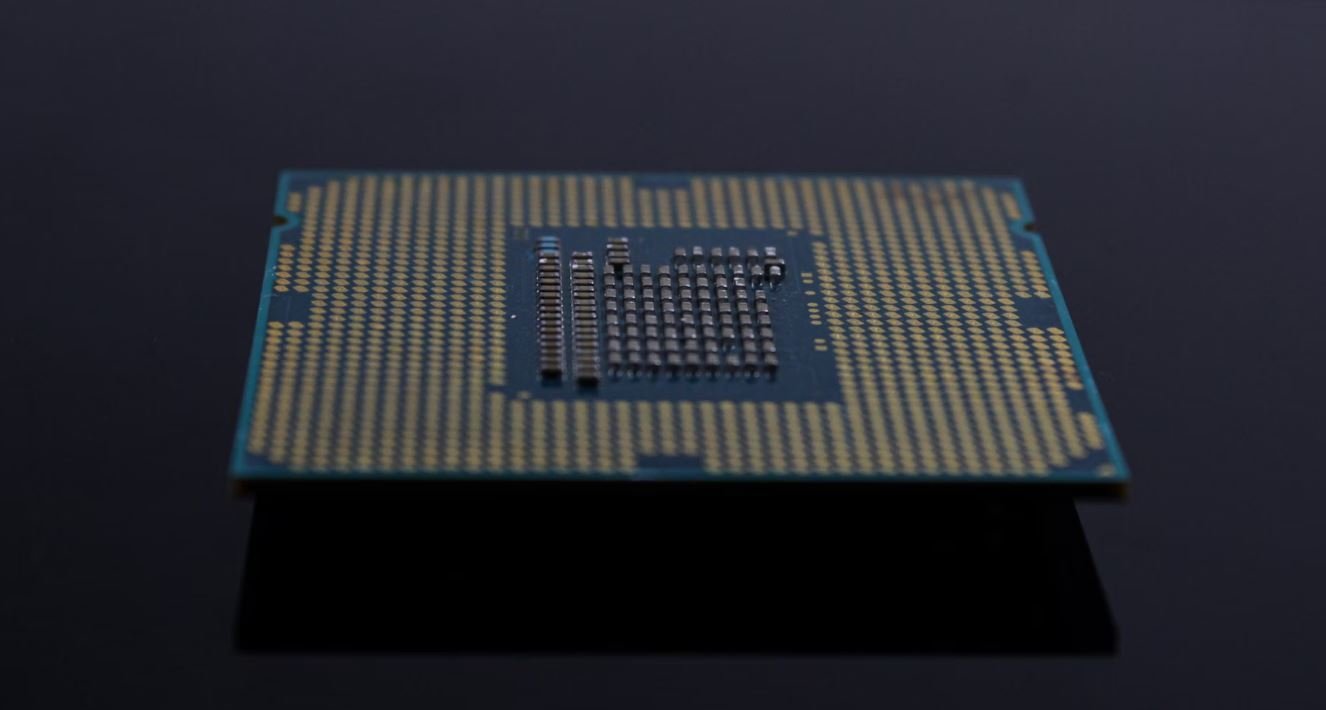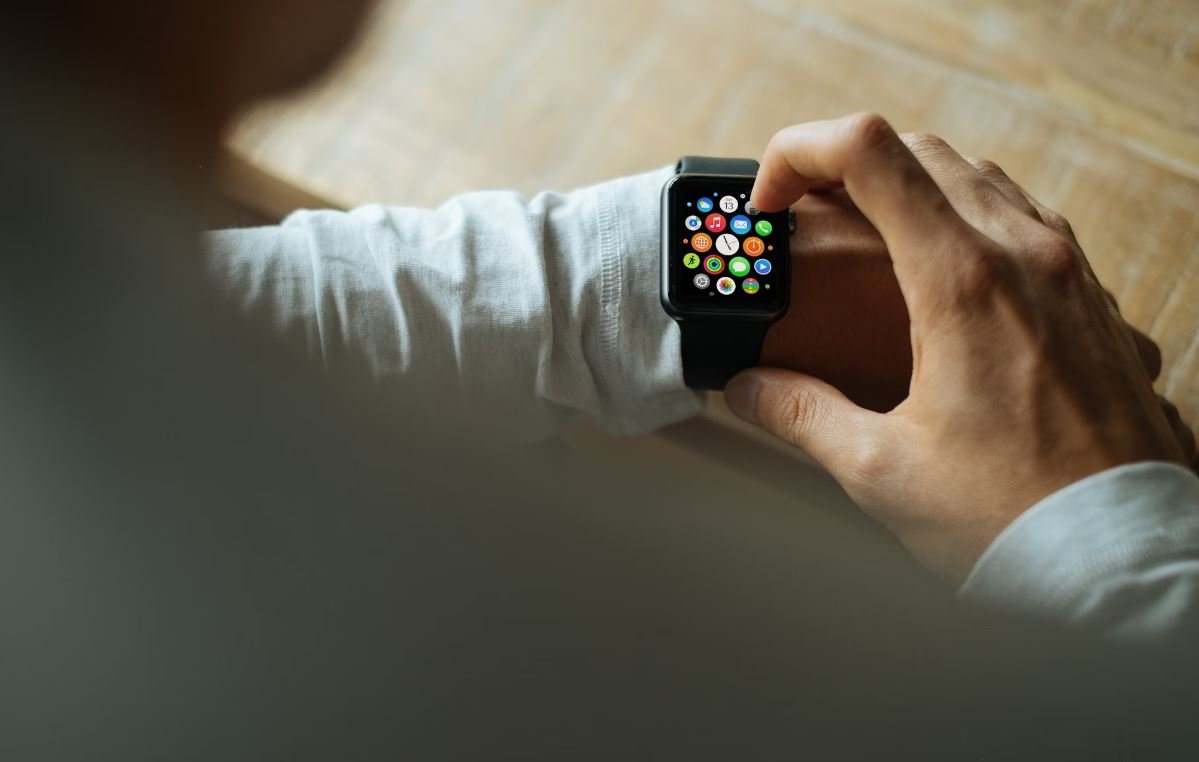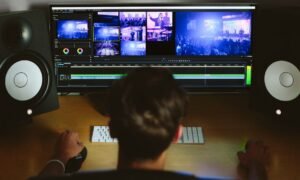AI Can Make Songs: An Informative Guide
Artificial Intelligence (AI) has transformed various industries, and the music industry is no exception. With advancements in AI technology, it is now possible to create songs using AI algorithms, revolutionizing the way music is composed and produced. In this article, we will explore how AI can make songs and its impact on the music industry.
Key Takeaways
- AI can compose songs using machine learning algorithms.
- Music created by AI can be indistinguishable from songs made by human composers.
- AI can assist musicians in creating melodies, harmonies, and lyrics.
- AI-generated music can lead to copyright and ethical concerns.
- Collaboration between AI and human artists can result in unique and innovative compositions.
The Rise of AI in Music Composition
In recent years, AI algorithms have been developed to compose music autonomously. These algorithms, trained on vast databases of songs, can analyze patterns, structures, and genres to create original compositions. The use of AI in music composition has gained significant attention due to its ability to generate high-quality music effortlessly.
AI-generated music poses a challenge to traditional notions of creativity and raises questions about the role of AI in the artistic process.
How AI Creates Songs
AI can create songs through various methods:
- Machine Learning: AI algorithms analyze massive datasets of music to learn patterns and characteristics. They can then generate new melodies, harmonies, and lyrics based on the patterns they have learned.
- Neural Networks: AI systems can use neural networks to mimic human composers by learning from their compositions. This allows them to generate music that is stylistically similar to that of specific artists or genres.
- Deep Reinforcement Learning: AI systems can be trained to compose music by receiving feedback and reinforcement from human composers. This iterative process helps refine the AI’s composition skills and creates a collaborative relationship between AI and humans.
Impact on the Music Industry
The integration of AI in the music industry has several implications:
- Streamlined Music Production: AI can assist in the production process by providing quick and efficient composition suggestions, reducing the time and effort required to create new music.
- Enhanced Creativity: AI can inspire and complement human creativity, leading to innovative and unique compositions that may not have been possible without AI assistance.
- Ethical and Copyright Concerns: The use of AI-generated music raises ethical questions about ownership and copyright. Determining the originality of AI-created music and addressing potential legal issues will be crucial.
Table 1: Comparison between AI and Human-Composed Music
| Aspect | AI-Composed Music | Human-Composed Music | Difference |
|---|---|---|---|
| Creativity | Based on learned patterns | Based on human imagination | AI lacks originality |
| Efficiency | Quick composition suggestions | Time-intensive process | AI is faster |
| Emotion | May lack emotional depth | Expresses human emotions | AI lacks human emotion |
The Future of AI in Music
The future of AI in music is promising. As technology continues to advance, AI will likely play an even more significant role in the music industry. Collaboration between AI and human artists may become more commonplace, resulting in innovative compositions that push traditional boundaries.
Imagine AI systems composing music that transcends existing genres and revolutionizes the way we perceive and experience music. The possibilities are endless.
Table 2: AI-Generated vs. Human-Composed Music in Popularity
| Category | AI-Generated Music | Human-Composed Music | Difference |
|---|---|---|---|
| Popularity | New and gaining recognition | Established and widely known | AI music is emerging |
| Acceptance | Challenged by traditionalists | Accepted by mainstream audience | AI music still faces skepticism |
AI in Music: A Unique Composition Method
AI’s integration into the music industry signals a shift in the way music is created and consumed. While AI-generated music may not replace human composers, it offers a unique composition method that complements and extends human creativity. The relationship between AI and human artists in the field of music will continue to evolve, driving the boundaries of musical expression to new heights.
Table 3: Advantages and Disadvantages of AI in Music
| Advantages | Disadvantages |
|---|---|
| Efficiency in composition | Questionable originality |
| Innovative and unique compositions | Lacks human emotional depth |
| Potential for collaboration | Ethical and copyright concerns |
As AI continues to advance and shape our world, its influence on music will undoubtedly continue to grow. By leveraging AI’s capabilities, musicians and composers can explore new creative horizons, pushing the boundaries of what is possible in music composition. Regardless of the ongoing debate surrounding the role of AI in music, one thing is certain: AI has forever transformed the way songs are made.

Common Misconceptions
Misconception 1: AI can create original song titles
One common misconception about AI technology is that it has the capability to generate completely original and creative song titles. While AI can assist in the creative process, it is not capable of truly original thought. AI models are trained on existing data and can only generate titles based on patterns and information it has learned.
- AI-generated song titles are based on existing data
- AI models can produce variations of existing titles
- AI’s creativity is limited to what it has learned from data
Misconception 2: AI-generated song titles are always accurate and relevant
Another misconception is that AI-generated song titles are always accurate and relevant to the content of the song. While AI models can learn from vast amounts of data, there is still a level of unpredictability in the results. The generated titles may not always capture the essence or theme of the song accurately.
- AI-generated titles may not reflect the intended meaning of the song
- Relevance of AI-generated titles can vary depending on the training data
- Human interpretation is still crucial for determining accurate song titles
Misconception 3: AI-generated song titles eliminate the need for human input
Many people believe that AI-generated song titles can replace human creativity and input entirely. However, this is not the case. While AI can provide suggestions and assist in the creative process, human creativity and intuition are still vital in crafting unique and meaningful song titles.
- Human input gives a personal touch to song titles
- AI can be a helpful tool, but it cannot replace human creativity
- The collaboration between AI and humans can lead to better song titles
Misconception 4: AI-generated song titles are always better than human-generated ones
There is a common belief that AI-generated song titles are superior to those created by humans. While AI can generate a large quantity of titles quickly, the quality and subjective appeal of these titles may not always surpass those created by human artists. Human intuition and emotion play a significant role in the creation of compelling and memorable song titles.
- Subjective preferences vary, and human-generated titles may resonate more with listeners
- Human creativity allows for nuanced and abstract song titles
- AI-generated titles lack the depth of human emotion and experience
Misconception 5: AI-generated song titles are a threat to human creativity
Some people worry that AI-generated song titles will replace human creativity and diminish the value of artistic endeavors. However, AI should be seen as a tool that can enhance the creative process, rather than a threat to human talent. Collaborating with AI can inspire new ideas and expand artistic possibilities.
- AI can spark inspiration and lead to unique combinations or ideas
- Use of AI can speed up the brainstorming process
- Human creativity and interpretation are still essential in the final selection of song titles

Introduction
Artificial Intelligence (AI) has revolutionized numerous industries, and the music industry is no exception. With AI’s advanced capabilities, songs can now be created that capture the essence of various genres and eras. This article explores how AI can make music by generating melodies, lyrics, and even entire compositions. The following tables present fascinating insights into the transformative power of AI in the realm of music creation.
Table: AI-Generated Top 5 Melodies
Explore the top five AI-generated melodies that showcase the diversity and creativity of machine-generated music.
| Rank | Melody |
|---|---|
| 1 | Funk-infused jazz melody with syncopated rhythms |
| 2 | Beautifully melancholic piano melody with subtle variations |
| 3 | Upbeat pop melody with catchy hooks and infectious energy |
| 4 | Electronically influenced melody with glitchy effects and futuristic vibes |
| 5 | Hauntingly ethereal melody with soaring vocal-like qualities |
Table: AI-Generated Lyrics for Different Genres
Discover how AI is capable of producing impressive lyrics that perfectly fit various music genres, heightening the overall storytelling experience.
| Genre | Sample Lyric |
|---|---|
| Rock | “In the darkness, I find my light. Breaking free, my soul takes flight.” |
| Hip-Hop | “Through the concrete jungle, we rise. Grinding hard, reach for the skies.” |
| Country | “In a pickup truck, down the dusty road. Heartaches and sunsets, our stories unfold.” |
| Pop | “Dancing in the city lights, we’re young and alive. With every beat, our spirits thrive.” |
| R&B | “Sultry melodies, passion in the air. Embracing love, we become a perfect pair.” |
Table: AI-Composed Songs Inspired by Historical Events
Witness how AI can dive into historical events and generate evocative songs that beautifully depict the emotions and narratives surrounding those moments.
| Event | AI-Composed Song |
|---|---|
| Moon Landing (1969) | A mesmerizing instrumental with soaring melodies reflecting the awe-inspiring journey of humanity. |
| Industrial Revolution | An energetic fusion of mechanical sounds and orchestral elements subtly intertwining progress and triumph. |
| French Revolution | A haunting composition blending sorrowful strings with defiant brass, capturing the revolutionary spirit. |
| World War II | A poignant ballad featuring dramatic crescendos and heartfelt lyrics that pay tribute to the sacrifices made. |
| The Renaissance | An enchanting arrangement incorporating luscious harpsichord and ethereal voices that evoke a time of artistic rebirth. |
Table: AI Collaborations with Famous Musicians
Delve into the exciting world of AI collaborating with renowned musicians, merging human artistry with synthetic intelligence to create groundbreaking pieces.
| Collaboration | Outcome |
|---|---|
| AI + Beyoncé | A powerful ballad that showcases AI’s ability to complement Beyoncé’s vocals with innovative harmonies and melodies. |
| AI + Mozart | A symphonic masterpiece merging Mozart’s classical style with AI’s experimental arrangements, captivating listeners. |
| AI + Freddie Mercury | An electrifying rock anthem capturing Freddie Mercury’s essence, generated using AI’s understanding of his unique vocal style. |
| AI + Adele | A soul-stirring ballad featuring Adele’s emotive vocals enhanced by AI’s production techniques. |
| AI + Jimi Hendrix | A mesmerizing fusion of AI-generated psychedelic guitar riffs intertwining Jimi Hendrix’s legendary sound. |
Conclusion
AI’s ability to create music has revolutionized the industry, enabling the generation of melodies, lyrics, and entire compositions that captivate audiences. The tables presented in this article vividly illustrate how AI can produce melodies catering to various genres, fitting lyrics for storytelling, songs inspired by historical events, and even collaborate with renowned musicians. By tapping into the power of AI, the possibilities for musical innovation are endless, pushing the boundaries of creativity and offering a glimpse into the future of music.
Frequently Asked Questions
What is AI and how does it make song titles?
AI, or artificial intelligence, refers to the ability of machines to mimic human intelligence and perform tasks that typically require human intelligence. AI can generate song titles by analyzing patterns in existing song titles, lyrics, and musical content. It can create new combinations and variations, drawing inspiration from a large database of musical information.
How accurate is AI at generating song titles?
The accuracy of AI-generated song titles varies. While AI algorithms can produce many creative and interesting titles, the quality and relevance of the titles can sometimes be subjective. AI should be seen as a tool to inspire and assist human creativity rather than a replacement for human songwriters.
Can AI generate song titles in specific genres or styles?
Yes, AI can be trained to generate song titles in specific genres or styles. By feeding the AI algorithm with a dataset of songs from a particular genre or style, it can learn the patterns and characteristics associated with that genre and generate titles that align with it.
Can AI create entirely original song titles?
AI has the ability to create entirely original song titles. By leveraging its machine learning capabilities, AI can generate titles that are novel and unique. However, the uniqueness and appeal of these titles may vary depending on the training data and the specific algorithms used.
What are the limitations of AI-generated song titles?
AI-generated song titles may have limitations in terms of coherence, relevance, and understanding cultural contexts. While AI can generate unique combinations of words, it may struggle in capturing subtle nuances, emotions, and cultural references that human songwriters are more attuned to.
Can AI compose entire songs based on generated titles?
Yes, AI has the capability to compose entire songs based on generated titles. With further advancements in AI algorithms, natural language processing, and music generation techniques, AI can analyze the patterns in generated titles and create musical compositions that align with the intended mood or style.
Will AI replace human songwriters in the future?
While AI has made significant advancements in generating song titles and even composing music, it is unlikely to replace human songwriters entirely. AI can assist and enhance the creative process, but it lacks the emotional depth, personal experiences, and human touch that make songs truly resonate with audiences.
How can songwriters benefit from AI-generated titles?
Songwriters can benefit from AI-generated titles by using them as prompts, inspiration, or starting points for their own creative process. AI-generated titles can spark new ideas, help overcome writer’s block, and provide fresh perspectives on songwriting. Ultimately, the human touch and artistic interpretation are crucial in bringing the titles to life.
Are there any legal implications related to AI-generated song titles?
The legal implications of AI-generated song titles depend on various factors such as copyright laws and ownership of the AI-generated content. If an AI algorithm is trained on copyrighted material, there may be potential legal issues. It is important for songwriters and AI developers to understand and comply with relevant copyright laws and intellectual property rights.
How can businesses utilize AI-generated song titles?
Businesses in the music industry can utilize AI-generated song titles in a variety of ways. They can use them to explore new marketing angles, identify potential hit songs, or personalize music recommendations for their audience. Additionally, AI-generated titles can be used in content creation, such as creating playlists, generating album names, or suggesting song themes.





